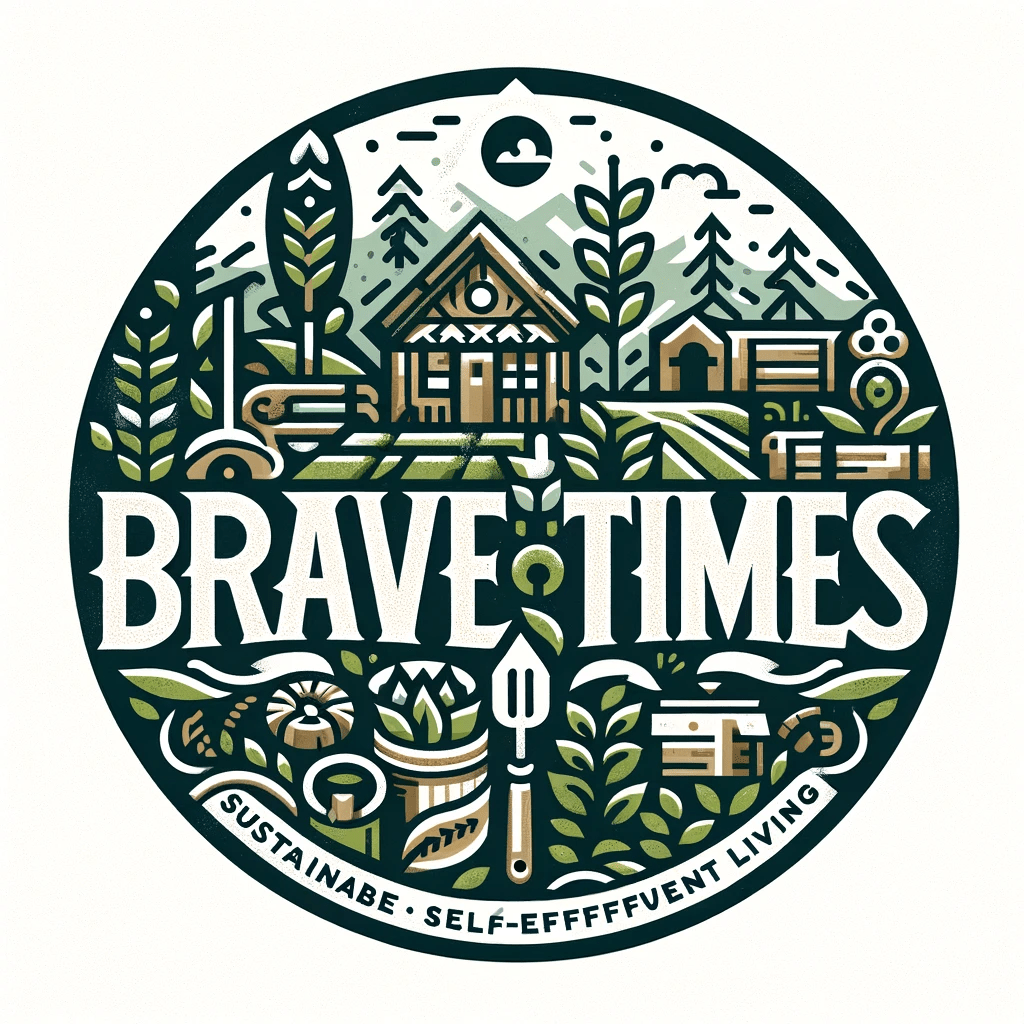Old Chickens, New Tricks: Sustainable Poultry Care for Modern Homesteaders
In a world striving for sustainability, homesteading has become a cherished way of life. And what’s a homestead
without some happy, clucking chickens? In this article, Milton Henderson, the seasoned environmentalist, shares his wisdom on sustainable poultry care. Read on to discover how you can raise chickens in an eco-friendly and self-sufficient manner.
Homesteading, with its emphasis on self-reliance and sustainable practices, is gaining popularity in today’s uncertain world. There’s a sense of fulfillment and satisfaction that comes from providing for yourself and your family, and what better way to do that than through the humble chicken?
Here’s where the sustainability principles come into play. By adopting responsible poultry care practices, you’ll not only have a fresh supply of eggs but also contribute to a healthier environment. Let’s explore some ideas to get you started:
1. Heritage Breeds: Consider raising heritage breeds of chickens, known for their resilience, adaptability, and ability to forage. These breeds have survived through generations and are hardy enough to withstand various climates.
2. Chicken Tractors: Instead of confining your chickens to a fixed coop, embrace the concept of mobile chicken tractors. These movable enclosures allow the chickens to graze on fresh grass, peck for insects, and fertilize the land as they go. Take advantage of their natural behaviors to create a mutually beneficial system.
3. Organic Feed: Opt for organic and locally-sourced chicken feed to minimize the environmental impact of commercial feed production. You can even grow your own feed by cultivating grains and vegetables on your homestead, closing the loop and reducing reliance on external sources.
4. Composting: Turn chicken manure and bedding into nutrient-rich compost to fertilize your gardens. This sustainable practice helps enrich the soil and minimizes waste, transforming chickens’ waste into black gold.
5. Natural Pest Control: Let your chickens do the pest control work for you. They love to hunt and peck at insects, keeping pests like ticks, slugs, and beetles in check. In turn, they provide a natural form of pest management without the need for chemical interventions.
6. Sustainable Housing: Build or repurpose coops using reclaimed materials. Not only will you save money, but you’ll also reduce waste and minimize your ecological footprint. Get creative and see what treasures you can find in salvage yards or your own storage.
7. Caring for Aging Hens: When hens reach the end of their egg-laying years, don’t be quick to discard them. Give them a dignified retirement on your homestead. While they may not lay as many eggs, they still contribute to pest control, garden maintenance, and can even become beloved pets.
As you embark on your journey towards sustainable poultry care, remember that patience and adaptability are key. Chickens, like any creatures, require care, attention, and a safe environment. By incorporating eco-friendly practices into your poultry raising efforts, you’ll create a rewarding and sustainable system on your homestead. So, embrace the old wisdom while adopting innovative approaches, and let your chickens provide you with not only eggs but also valuable lessons in self-sufficiency and sustainable living.
Homesteading may seem like a throwback to simpler times, but in today’s complex world, it represents a path towards a more self-reliant, environmentally conscious, and fulfilling way of life. Join us as we celebrate the old traditions and explore new ways of sustainable living. Together, we can make a difference, one chicken at a time.


23 Responses
While I can appreciate the romantic sentiment of this piece, it sadly fails to critically appraise the true ramifications of small-scale homesteading as a model for ‘sustainability’. First and foremost, the scalability of a self-reliant micro farm containing a small flock of chickens seems rather fantastical. Realistically, economies of scale allow for the optimized processing and distribution of poultry products, always necessary for densely populated regions. Obviously, sustainable solutions are essential, but this piece drowns in overly romantic peans to homespun simplicity instead of practically analyzing the inherent challenges. A disappointing read, if I’m honest.
An enriching read indeed on sustainability, but I’d love to hear more about dealing with the inevitable health issues that arise over the lives of chickens, especially considering the sustainable medicines or treatments that could substitute commercial medication. Isn’t modern homesteader supposed to entirely depend on the natural remedies?
You’ve raised an important point, and I appreciate your interest. Indeed, the health of our chickens is paramount. I’ll be sure to delve into sustainable health care and natural remedies for poultry in my upcoming articles. While modern homesteading does encourage reliance on natural remedies, it’s all about balance and what works best for the chickens’ wellbeing. Stay tuned for more insights!
I absolutely agree with you, the health of our chickens should be our top priority. I’m looking forward to learning about natural remedies for poultry health in your upcoming articles. It’s crucial for us to find a balance between modern and traditional practices for the wellbeing of our chickens.
You make a valid point about health issues in chickens. It’s crucial to remember that sustainable doesn’t necessarily mean avoiding all commercial medications. It’s about balance, using natural remedies where appropriate, but also acknowledging when modern medicines are needed. Future articles should definitely delve into this complex issue to provide a comprehensive understanding about sustainable poultry care.
I thoroughly enjoy the emphasis on both self-reliance and sustainable practices. This is what homesteading is all about. Not merely a nostalgic return to old times, but a realistic and nifty way to self sufficiency in an unpredictable world. It’s beautiful to see how every aspect of this daily endeavor can contribute to a more sustainable living, touching on intelligent recycling, organic feeding, and natural pest control. Each step is a testament to how our lifestyle choices can lead to a more balanced relationship with nature.
I couldn’t agree more, sustainable homesteading creates a beautiful balance with nature. It’s a practical and fulfilling way to live, reminding us of our ability to be self-reliant. The practices like organic feeding, natural pest control, and intelligent recycling are indeed testament to our lifestyle choices leading to a more sustainable living.
Having raised homegrown chickens before, I can relate to this wonderfully described journey. Still, aren’t there any other sustainable ideas apart from repurposing old chicken coops? Like some innovations in chicken farming that small-scale homesteaders can adopt? It’s not always easy to get access to salvaged resources.
Indeed, there are numerous innovative methods in sustainable poultry farming. One example is the use of vertical farming, where chickens are raised in stacked layers, saving ground space. Another is using solar-powered chicken coops that utilize renewable energy. It’s all about researching and implementing practices that align with your circumstances and resources.
I definitely appreciate the comprehensive approach of the article towards sustainable poultry care. It takes into account every aspect one should consider when embarking on this journey: from the choice of the chicken’s breed, nutritional needs, housing, up to aging hens that are past their prime laying years while reducing reliance on external commercial sources. The blend of ‘old wisdom’ and innovative solutions is both refreshing and reassuring in our quest towards environmental sustainability.
This article brings into light the reality of sustainable poultry care. I truly appreciate the highlight on heritage breeds as well as the concept of chicken tractors. Sharing this with local farmer’s market community for raising more awareness. It’s high time we normalize these practices for a more sustainable future.
Milton Henderson has done an excellent job of outlining the tenets of eco-friendly poultry rearing. His strategies would be fruitful to anybody on the homesteading journey – from the seasoned professional to the novice homesteader. In particular, the adaptation of ‘Chicken Tractors’ strikes me as a shrewd integration of chicken’s natural behavior and the need for sustainable farming practices. Moreover, the thoughtful care for aging hens resonated deeply – it’s a humane approach brewing with resonance to our society’s approach to aging. What an enlightening read! The appreciation of such simple beings as chickens being a key to sustainable living is a perspective shift indeed.
Thank you for your thoughtful comment! I agree, Milton Henderson’s insights are valuable for anyone interested in homesteading and sustainable practices. It’s wonderful to see the appreciation for the ‘Chicken Tractors’ and the humane approach to aging hens. After all, every creature has its role in the ecosystem. I’m glad this article resonated with you and helped shift your perspective. Happy homesteading!
Absolutely, every creature plays a role in the ecosystem, and it’s our duty to respect and promote that. I’m thrilled you found value in Milton’s insights and the concept of ‘Chicken Tractors’. It’s a simple yet effective way to promote sustainability. Let’s continue to learn and grow in our homesteading journey!
Great treasure trove of pragmatic advice for novice homesteaders here. As someone who longs for self-sufficiency, it’s comforting to know about these old but gold approaches in line with innovative tricks. Recommending this to other budding homesteaders in my community.
In impoverished communities, where access to organic feed might not be feasible or is tricky, how to sustain the practice of feeding naturally while ensuring our chickens stay healthy would be an element to ponder. Expensive local produce or imported feeds might not become a reliable source in the long run.
You raise a valid point about the challenges of sourcing organic feed in impoverished areas. Perhaps a solution could be to foster community initiatives that focus on growing and sharing sustainable feed. This way, the cost is shared and the practice becomes more feasible. Also, let’s not forget chickens are great foragers, which can help supplement their diet.
You’re right, fostering community initiatives would be a great way to make organic feed more accessible. This idea aligns perfectly with the principles of homesteading, where community cooperation plays a big role. And yes, the natural foraging habits of chickens definitely add to their sustainability. Thanks for your thoughtful input!
A captivating read indeed. However, I would like to see more clear-cut guidelines on the ‘how’ of incorporating some of these sustainable practices. The transformation from commercial to sustainable poultry, while exhilarating, can also feel quite daunting for the uninitiated.
While wholesome, this piece paints a slightly romantic picture of poultry care. Yes, homesteading offers many opportunities for sustainable and self-sufficient living. However, it’s also a significant time and effort commitment, particularly if you balance it with modern life obligations such as a job, family responsibilities or health considerations. Also, potential homesteaders should remember that while chickens can provide opportunities for on-site pest control and potentially significant feed cost reductions, it can be a challenge to balance their input/output ratios, and they cannot be your sole strategy for either.
Impressive how in-depth the article goes into each aspect! This is a rare, essential discourse in the society we are living today. I revere the sustainable practices advertised here, especially ones on aging hens. This aligns with my belief in honoring all stages of natural life cycle, discarding nothing.
I totally agree with you! It’s really heartening to see such an emphasis on sustainable practices and honoring the natural life cycle. More people should adopt this mindset when it comes to homesteading and farming. It’s not just about productivity, but also respect for nature and our environment.
What a stunning article on homesteading and sustainable poultry care! Milton really gives great insights – especially about organic feed and composting. For over a decade now, I’ve had my hens on a completely organic feed and the results, in terms of egg quality, are remarkable.